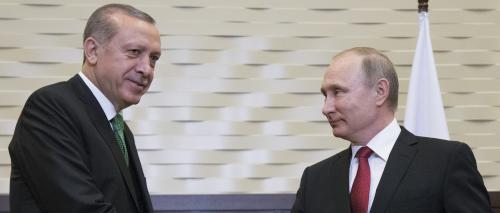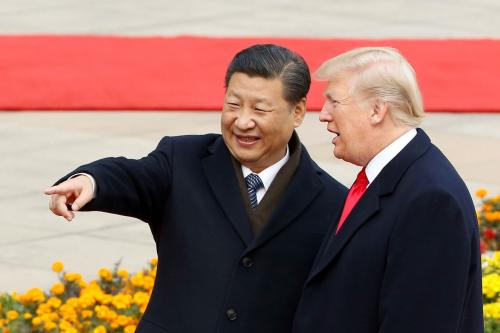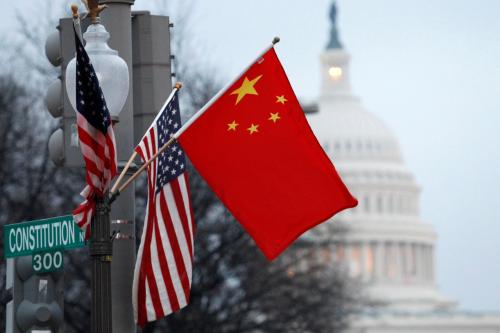

3:00 pm EDT - 4:30 pm EDT
Past Event
3:00 pm - 4:30 pm EDT
1775 Massachusetts Avenue N.W.
Washington, DC
20036
The history of Turkish-Russian relations is replete with sudden outbursts of anger and unexpected rapprochements. Even in just the past couple of years, Moscow and Ankara swung from conflict to reconciliation with startling speed. Fewer than six months after Turkey’s downing of a Russian jet near Syria in November 2015, the two countries concluded deals on a gas pipeline and a nuclear plant. Following the assassination of the Russian ambassador in Ankara in December 2016, they collaborated on a framework to stop the fighting in Syria. Moving forward, fluctuations will likely continue to characterize this ever-uncertain relationship.
In the latest Turkey Project Policy Paper, “An ambiguous partnership: The serpentine trajectory of Turkish-Russian relations in the era of Erdoğan and Putin,” Pavel K. Baev and Kemal Kirişci explore the main areas of interaction between Ankara and Moscow. They discuss the implications of these shifting dynamics on Turkey’s relations with its trans-Atlantic allies, particularly the United States and the European Union.
On September 19, 2017, the Center on the United States and Europe (CUSE) hosted a panel discussion on the conclusions from this latest Turkey Project Policy Paper. The authors Baev and Kirişci was joined by Evren Balta, Fulbright visiting scholar at New York University, and Naz Durakoğlu, senior policy advisor to Senator Jeanne Shaheen at the U.S. Senate. The discussion was moderated by Torrey Taussig, post-doctoral research fellow at Brookings.
Following the conversation, panelists took questions from the audience.
Related Content

Pavel K. Baev, Kemal Kirişci
September 19, 2017
Panelist



Yun Sun
February 6, 2025

Ryan Hass, Jude Blanchette
January 7, 2025
2024
The Brookings Institution, Washington D.C.
Thursday, 11:00 am - 12:15 pm EST